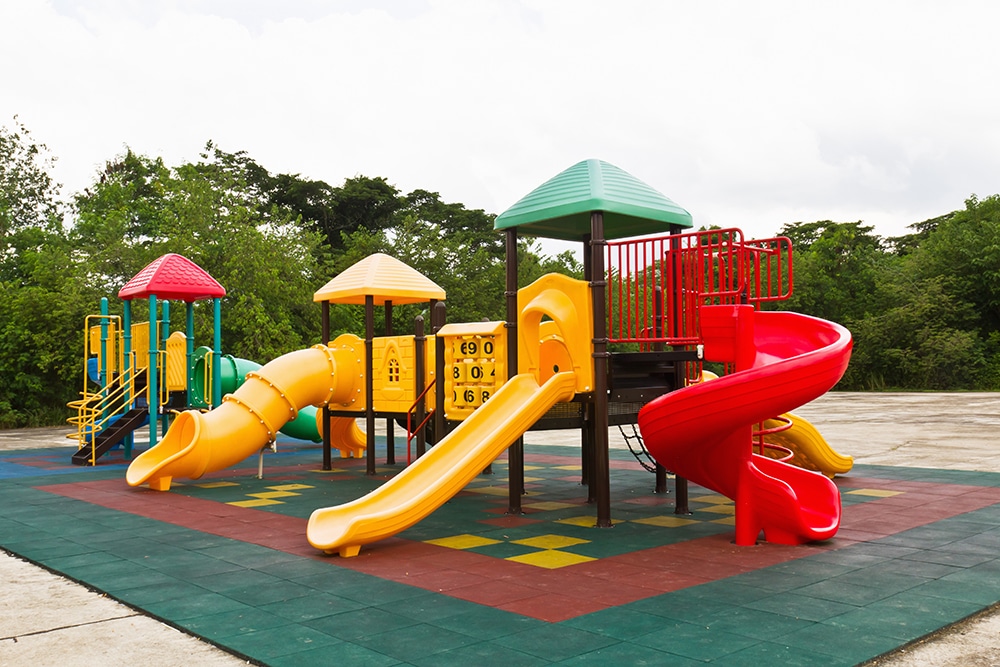For parents, teachers, and anyone else who is regularly around children, the need to maintain a safe and healthy environment remains a top priority. From ensuring nutritional lunches in schools and eliminating risks of potentially dangerous allergen exposure to requiring vaccinations and strictly monitoring the people who come in and out of their lives, there is no end to what society will do to prevent harm to our nation’s future. Except, what happens when the danger is on the playground? As suspicions continue to rise within the Environmental Protection Agency (EPA), Centers for Disease Control and Prevention (CDC), and the U.S. Consumer Product Safety Commission (CPSC) of potentially harmful levels of chemicals in playgrounds with recycled tire surfaces, responsible adults are encouraged to combat future illness by heeding the safety advice about playgrounds with recycled tire surfaces and following the recommendations for treating exposure.
Keep It Clean
If you cannot limit exposure to recycled tire surfaces, the next best thing is to ensure that you are not carrying any potentially harmful substances around with you for any significant length of time. Make sure you thoroughly clean off any toys and exposed skin to rid your child of any leftover playground germs, and if you notice black marks or excessive dust on their clothes, be sure to let them change into something clean as soon as possible.
Hot Day = No Play
Aside from just the potentially toxic chemicals, these playgrounds made with recycled tire surfaces can absorb heat at an insane capacity, making burns and skin damage a likely possibility on days of extreme heat. Children already have much more sensitive skin than adults, and when they are exposed to recycled tire surfaces in excessive sunlight, something as simple as a stumble can cause painful blisters and more.
Consumption
The most likely way for a child to face an ill effect of recycled tire surfaces is through either direct or indirect consumption. Whether the child is very young and habitually chewing on the recycled tire surfaces (which can also be a choking hazard), or their dirty hands come into contact with foods and beverages, all of the harmful tire dust and chemicals are likely to enter their system. You should never allow a child to eat or drink anything on top of or off of a recycled tire surface or without properly washing their hands and face after exposure.
Though there are no specific health hazards of recycled tire surfaces known at this time, limited exposure and general caution is advised to ensure the preservation of the health and well-being of children everywhere. If you or someone you know has been involved in consumer product related injury and require a professional attorney to assist you in a case, call us at 1.877.732.2491 or complete our free case review form to receive a prompt response from our one of our knowledgeable staff or attorneys. We are advocates of injury victims’ rights and fight aggressively for victims and their families.

